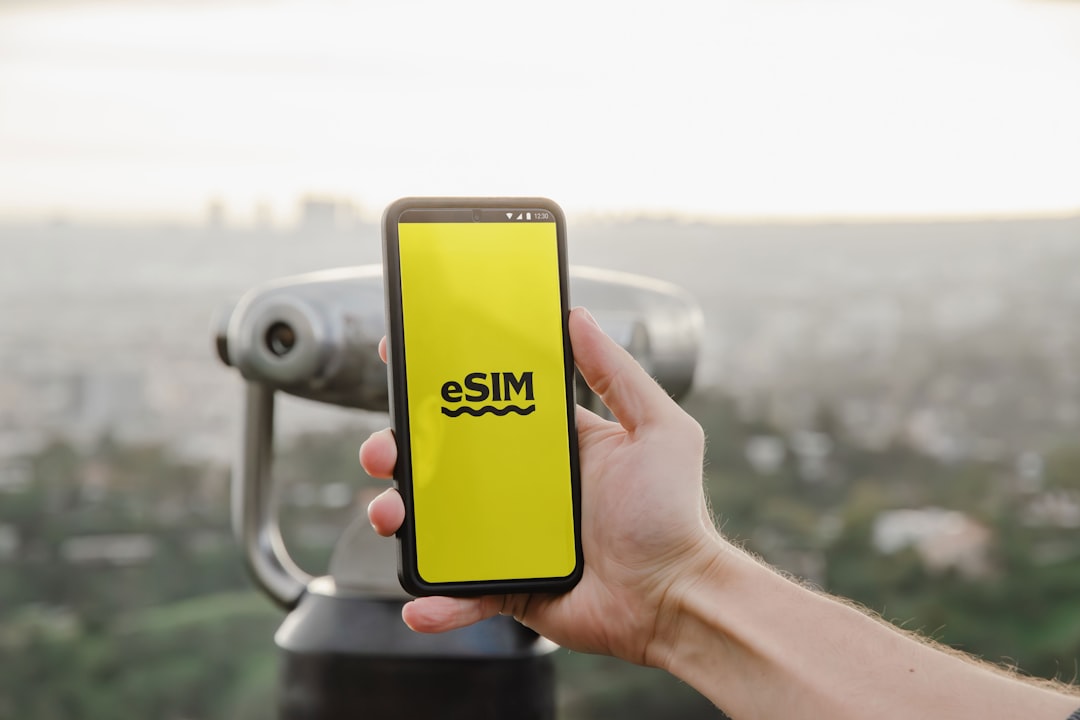Essential Legal and International Payment Tips for Digital Nomads

Introduction
The digital nomad lifestyle promises the freedom to work from a beach in Bali, a co‑working space in Lisbon, or a mountain cabin in Medellín. That freedom, however, comes with a unique set of legal and financial challenges. When you are constantly crossing borders, the rules that govern banking, taxation, and residency can shift beneath your feet. Getting those rules right is not a luxury; it is essential for protecting your income, avoiding costly penalties, and keeping your travel plans on track.
This guide consolidates the most practical legal and international payment tips for digital nomads. It covers everything from selecting a home base that minimizes tax exposure, to setting up banking relationships that survive frequent border crossings, to choosing payment platforms that keep transaction fees low and security high. By the end of this article you will have a clear roadmap for staying compliant, keeping your money flowing smoothly, and focusing on what matters most—your work and your adventure.
Legal Foundations for the Mobile Workforce
Understanding Your Employment Status
The first legal question any nomad must answer is whether they are an employee, an independent contractor, or a hybrid. Each classification carries different obligations for tax withholding, social security contributions, and labor protections.
-
Employee – Your employer typically withholds income tax and social security contributions in the country where the payroll is processed. If you work remotely for a company registered in the United States, for example, you will likely remain subject to U.S. payroll tax rules regardless of where you are physically located.
-
Independent Contractor – You receive gross payments and are responsible for estimating and paying taxes in the jurisdiction where you are tax resident. Contractors also need to manage their own pension, health insurance, and retirement savings.
-
Hybrid – Some platforms classify workers as “self‑employed” for tax purposes while still providing benefits such as health insurance through the employer’s benefits portal. Understanding the exact terms of your contract is critical because misclassification can trigger audits in multiple countries.
The Importance of Written Agreements
Even when you work for a client you have never met in person, a solid written agreement protects both parties. Include the following clauses:
- Scope of work and deliverables
- Payment schedule, currency, and method
- Intellectual property ownership
- Confidentiality and data protection
- Termination rights and notice periods
- Jurisdiction and governing law
A clear contract reduces the risk of disputes and makes it easier to prove the nature of the relationship to tax authorities.
Visa and Work Permit Realities
Most countries differentiate between a tourist visa and a work permit. While a short‑term stay on a tourist visa may allow you to “work remotely for a foreign employer,” many jurisdictions are tightening enforcement. Research the specific rules of each destination before you arrive.
-
Digital Nomad Visas – A growing number of countries now offer dedicated visas that explicitly allow remote work. These visas often come with a minimum income requirement, a limited stay period (usually 12 months), and the possibility of renewal.
-
Business Visas – If you plan to meet clients locally or set up a physical office, a business visa may be required.
-
Schengen Rules – For travel within the Schengen Area, the 90‑day rule applies. Staying longer without a proper visa can lead to fines, deportation, or future entry bans.
Choosing the Right Jurisdiction for Tax Efficiency
Tax Residency Basics
Most countries determine tax residency based on physical presence, usually a “183‑day rule.” If you spend more than half the year in a country, you will generally become a tax resident there and be liable for worldwide income. Some nations use a “center of vital interests” test, looking at family, property, and economic ties.
To keep your tax burden manageable, many nomads adopt one of the following strategies:
-
Establish a Low‑Tax Home Base – Countries such as Portugal (Non‑Habitual Resident regime), Georgia, and the United Arab Emirates offer attractive tax rates for qualified foreign‑earned income.
-
Maintain a “Stateless” Profile – By keeping stays under the residency thresholds in every country you visit, you can avoid becoming a tax resident anywhere. This approach requires diligent travel planning and a reliable system for tracking days spent abroad.
-
Utilize Territorial Tax Systems – Nations like Singapore, Hong Kong, and Panama tax only income earned within their borders. If your earnings are generated from clients outside the country, you may pay little or no tax locally.
Double Tax Treaties (DTTs)
A double tax treaty is an agreement between two countries that prevents the same income from being taxed twice. When you are a tax resident of one country but earn money from another, the DTT determines which nation has the primary right to tax the income and which provides a credit or exemption.
Key points to verify in any treaty:
- Definition of residency for treaty purposes
- Treatment of employment income, self‑employment income, and dividends
- Relief mechanisms (foreign tax credit vs. exemption)
- Tie‑breaker rules for dual residency
Before you sign a contract with a client, check whether your home country has a treaty with the client’s country. This knowledge can save you from unexpected withholding taxes.
Reporting Obligations Beyond Income Tax
Many jurisdictions require additional disclosures for foreign assets, bank accounts, and digital currencies. Some of the most common reports include:
-
Foreign Bank Account Report (FBAR) – U.S. persons must file an FBAR if the aggregate value of foreign accounts exceeds $10,000 at any point in the year.
-
Common Reporting Standard (CRS) – An OECD initiative that obliges financial institutions to exchange account information with tax authorities in participating countries.
-
Country‑Specific Forms – For example, the United Kingdom’s “Self‑Assessment” includes a “Foreign Income” section, while Australia’s “Foreign Income Tax Offset” schedule captures overseas tax credits.
Ignoring these filing requirements can trigger penalties far larger than the tax you owe, so integrate them into your regular bookkeeping routine.
Banking Essentials for a Borderless Lifestyle
Choosing a Bank That Supports Mobility
Traditional banks often impose residency requirements, high fees for international transfers, and limited online account management. Look for banks that meet the following criteria:
- No mandatory physical address in a specific country
- Low or no foreign transaction fees
- Competitive exchange rates for currency conversion
- Robust online and mobile platforms with two‑factor authentication
- Access to worldwide ATM networks without surcharge
Examples of banks that frequently meet these needs include:
-
Revolut – Offers multi‑currency accounts, instant currency exchange, and a debit card accepted worldwide.
-
Wise (formerly TransferWise) – Provides a “borderless” account with local bank details in several regions, making it easy to receive payments in multiple currencies.
-
N26 – A German‑based neobank that operates across the European Economic Area and offers fee‑free card usage abroad.
-
Local International Banks – Institutions such as HSBC, Citi, and Standard Chartered have global footprints and can accommodate expatriates, though they may require higher minimum balances.
Setting Up an International Account
When opening a new account, be prepared to supply:
- A valid passport
- Proof of address (utility bill, rental agreement, or a letter from a local host)
- Source of funds documentation (employment contract, invoices, or tax returns)
If you are not a resident of the bank’s home country, some institutions will ask for a “reference letter” from an existing bank. It helps to have an established relationship with a home‑country bank that can provide this reference.
Managing Multiple Currency Balances
Holding funds in several currencies reduces the need for constant conversion and protects you from exchange‑rate volatility. A practical approach:
- Keep a “core” currency (often USD, EUR, or GBP) for the majority of expenses.
- Maintain a “regional” currency for the area where you spend most of your time (e.g., AUD for Australia, THB for Thailand).
- Use a “savings” currency in a low‑interest, high‑stability jurisdiction (e.g., CHF or SGD) for longer‑term storage.
Periodically review the balances and transfer excess funds to the most appropriate account using low‑cost services like Wise or Revolut.
Protecting Your Accounts While Traveling
Security is paramount when you rely on digital banking. Follow these best practices:
- Enable biometric authentication (fingerprint or facial recognition) on your banking apps.
- Use a reputable password manager to generate unique, strong passwords for each service.
- Set up account alerts for logins, withdrawals, and large transactions.
- Keep a backup of recovery codes in a secure offline location (e.g., encrypted USB drive).
- Avoid public Wi‑Fi for banking; if you must use it, connect through a trusted VPN.
International Payment Methods: Choosing the Right Tools
Direct Bank Transfers
Wire transfers remain the most universal method for moving large sums across borders. They are reliable but can be expensive, especially when multiple intermediary banks are involved. To keep costs down:
- Choose a “local” transfer whenever possible (e.g., sending USD to a U.S. bank account from another U.S. bank).
- Use banks that belong to the same global network (e.g., HSBC to HSBC) to avoid correspondent fees.
Online Money Transfer Services
Fintech platforms have dramatically lowered fees and improved speed for cross‑border payments.
- Wise – Transparent fee structure, real‑time mid‑market exchange rates, and the ability to send money to over 80 countries.
- Payoneer – Popular among freelancers and marketplaces; offers a prepaid MasterCard and the ability to receive payments from companies like Amazon, Upwork, and Airbnb.
- Revolut – Instant transfers between Revolut users, free currency exchange up to a certain limit each month, and a low‑cost “Premium” tier for higher limits.
When selecting a service, compare:
- Transfer fee (percentage or flat)
- Exchange rate margin (the spread above the mid‑market rate)
- Transfer speed (same‑day, next‑day, or longer)
- Recipient convenience (bank account only, or also a mobile wallet)
Credit and Debit Cards
For everyday expenses, a card with no foreign transaction fees is a must. Many digital nomad cards also provide travel insurance, airport lounge access, and purchase protection.
- Look for cards that waive both currency conversion fees and ATM surcharge fees.
- Some cards automatically convert transactions at the point of sale using the interbank rate, which can be cheaper than the bank’s rate applied later.
Cryptocurrency Payments
Bitcoin, Ethereum, and other digital assets are gaining acceptance among freelancers and tech‑savvy clients. While crypto can bypass traditional banking fees, it introduces volatility and regulatory considerations.
- Use stablecoins (e.g., USDC, USDT) to lock in value when you need to hold funds temporarily.
- Keep records of each crypto transaction, including date, amount, fair market value, and purpose, for tax reporting.
- Verify the legal status of crypto in both your residence country and the client’s jurisdiction before accepting payments.
Peer‑to‑Peer Platforms
For small, frequent payments, services like Venmo, Zelle, or Cash App can be convenient, but they are usually limited to specific regions (primarily the United States). If you have a U.S. bank account, you can use these platforms to receive client payments and then move the funds to a lower‑cost international account for conversion.
Currency Conversion Strategies
Timing the Market
Exchange rates fluctuate daily based on macroeconomic events, central‑bank policy, and market sentiment. While it is impossible to predict movements with certainty, you can reduce exposure by:
- Setting up automatic “rate alerts” on platforms like Wise or OANDA.
- Using “limit orders” where available, which execute a conversion only when the rate reaches your target.
- Converting a portion of your funds regularly (dollar‑cost averaging) rather than waiting for a single optimal moment.
Using Multi‑Currency Accounts
Holding balances in multiple currencies eliminates the need for immediate conversion. When a bill is due in a specific currency, simply draw from the matching balance. This approach avoids conversion fees altogether.
Leveraging Low‑Cost Exchange Services
Traditional banks often apply a 2‑3 % markup on the interbank rate. Fintech services typically add only a 0.5‑1 % margin. For large conversions, consider using a “foreign exchange broker” that can negotiate even tighter spreads, especially if you move six figures or more per year.
Compliance with Anti‑Money Laundering (AML) and Know‑Your‑Customer (KYC) Rules
Financial institutions worldwide are required to verify the identity of their customers and monitor transactions for suspicious activity. As a nomad you may encounter additional scrutiny because of your frequent travel and multiple jurisdictions.
- Maintain Consistent Documentation – Keep copies of passports, visas, proof of address, and source‑of‑funds documents readily available.
- Provide Clear Transaction Descriptions – When sending or receiving payments, use descriptive references (e.g., “Web design invoice #1234”) to help banks understand the purpose.
- Be Transparent About Your Lifestyle – If a bank asks why you travel frequently, explain that you are a remote worker and provide supporting contracts.
Failure to comply with AML/KYC requests can result in frozen accounts, delayed transfers, or even account termination. Respond promptly and keep a record of all communications.
Insurance, Health, and Liability Considerations
Health Insurance for the Global Citizen
Many expatriate health plans require you to be a resident of the country where the policy is issued. For nomads, the best options are:
- International Private Medical Insurance (IPMI) – Companies such as Cigna Global, Allianz Care, and SafetyWing offer plans that cover medical treatment in any country, often with optional add‑ons for dental and vision.
- Travel Medical Insurance – Short‑term policies are suitable for stays under six months but may not cover pre‑existing conditions or long‑term care.
Compare policies based on:
- Coverage limits and exclusions
- In‑network vs. out‑of‑network reimbursement
- Ability to claim cashless at local hospitals
- Premium cost relative to your income
Professional Liability and Business Insurance
If you provide consulting, design, or development services, a professional indemnity policy protects you against claims of negligence or errors. Many insurers now offer “global” policies that do not require a fixed business address.
Property and Gadget Insurance
Your laptop, camera, and other work equipment are essential assets. Insuring them against theft, accidental damage, and loss can save you downtime and replacement costs. Look for policies that cover items worldwide and offer a simple claims process.
Practical Checklist for Staying Legally and Financially Secure
- Determine your tax residency – Track days spent in each country using a spreadsheet or a dedicated app.
- Register for a suitable visa – Apply for a digital nomad, business, or long‑stay visa before you arrive.
- Set up a multi‑currency bank account – Choose a provider that offers low fees and robust security.
- Choose payment platforms – Open accounts with Wise, Payoneer, and a no‑foreign‑transaction‑fee card.
- Create a standard contract template – Include clauses on jurisdiction, IP ownership, and payment terms.
- Maintain accurate bookkeeping – Record all invoices, receipts, and currency conversions.
- File required tax returns and reports – Include FBAR, CRS disclosures, and local tax filings.
- Purchase comprehensive insurance – Health, professional liability, and gadget coverage.
- Implement security best practices – Two‑factor authentication, password manager, VPN usage.
- Stay informed – Subscribe to newsletters from tax advisors, nomad visa portals, and fintech updates.
Conclusion
Living the digital nomad dream is no longer a distant fantasy, but it does require a disciplined approach to legal and financial matters. By understanding where you are considered a tax resident, leveraging double tax treaties, and selecting banking and payment solutions built for mobility, you can keep more of your earnings and avoid costly compliance pitfalls. Combine those financial strategies with proper visas, solid contracts, and comprehensive insurance, and you create a sturdy foundation that lets you focus on the work you love while exploring the world.
Remember that laws and regulations evolve quickly, especially as governments adapt to the rise of remote work. Periodically review your setup, consult with a qualified tax professional familiar with international nomad issues, and stay proactive about any changes that could affect your status. With the right knowledge and tools, the globe truly becomes your office.
Random Posts

Affordable Health Coverage Options for Long Term Travelers
Discover affordable health insurance for digital nomads: compare plan types, pick cost-effective options, and follow a step-by-step guide to stay covered worldwide without breaking your budget.
3 weeks ago

Spain Cost of Living Guide for Digital Nomads
Discover Spain’s digital nomad cost of living: climate, culture, low expenses, regional price differences, visa basics, and smart budgeting tips to enjoy a Mediterranean lifestyle without breaking the bank
3 days ago

Wander Through Europe’s Best Remote Work Cities
Discover Europe’s top remote-work hubs where fast internet, vibrant culture and affordable living combine, giving digital nomads the perfect blend of productivity and adventure.
2 weeks ago

The Definitive Nomad Library Apps Podcasts and Learning Paths
Discover the ultimate toolkit for digital nomads: essential productivity apps, finance and health tools, must listen podcasts and curated learning paths to stay efficient, healthy and constantly upskilling while you travel.
1 month ago

Navigating Digital Nomad Permits A Step by Step Travel Handbook
Learn how to secure a digital nomad permit from start to finish with this step by step travel handbook, packed with practical tips, common pitfalls, and real world examples to keep you compliant abroad.
1 month ago
Latest Posts

Essential Software Every Remote Professional Should Use
Master remote work with essential tools: instant messaging like Slack, high definition video calls such as Zoom, and asynchronous voice apps. Streamline communication, stay connected and boost productivity.
1 day ago

Mastering Remote Work Productivity for Digital Nomads and Freelancers
Learn proven habits, tools, and tactics that help digital nomads and freelancers stay focused, deliver quality work, and maintain a sustainable lifestyle while traveling the world.
1 day ago

Tech‑Friendly European Towns Perfect for Remote Living
Discover Europe’s best small towns where fast internet, affordable living and vibrant tech communities let you work remotely while soaking up historic charm, lakeside views or mountain air.
1 day ago